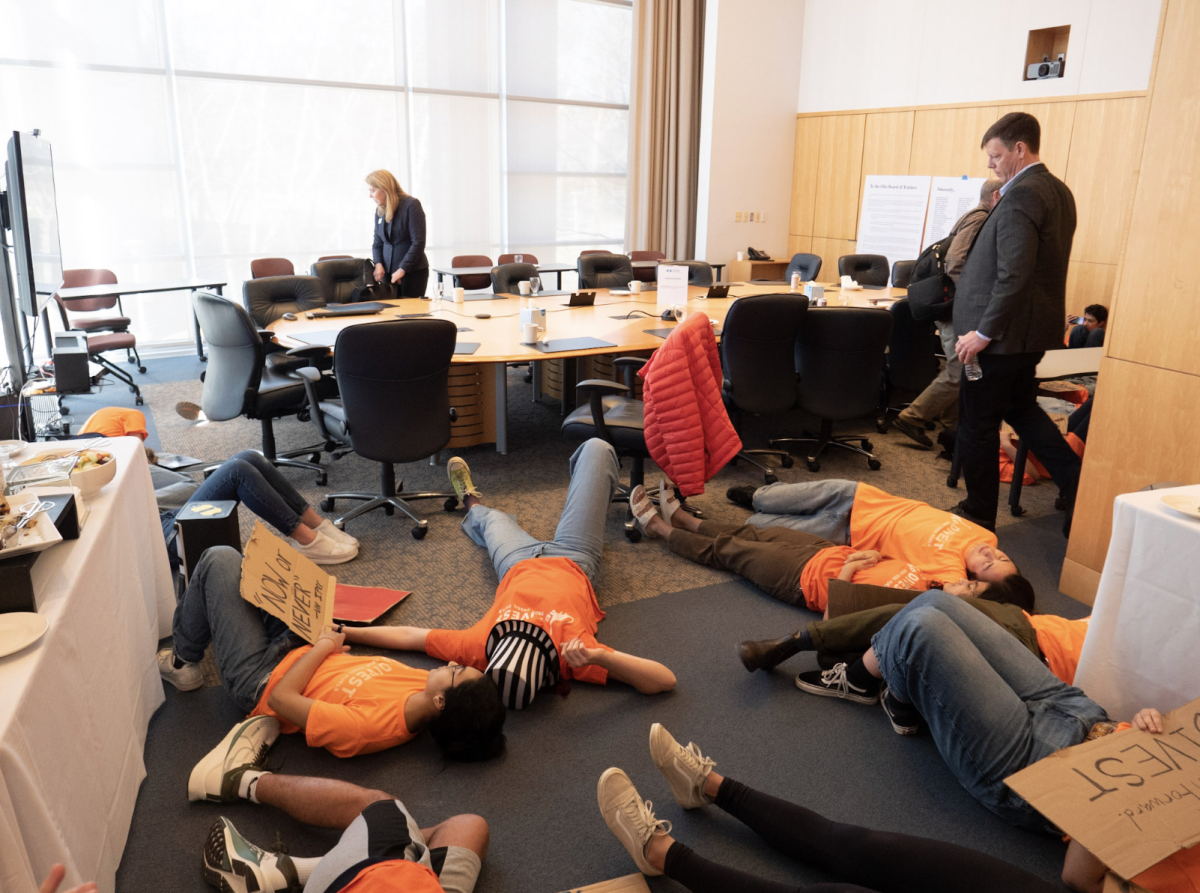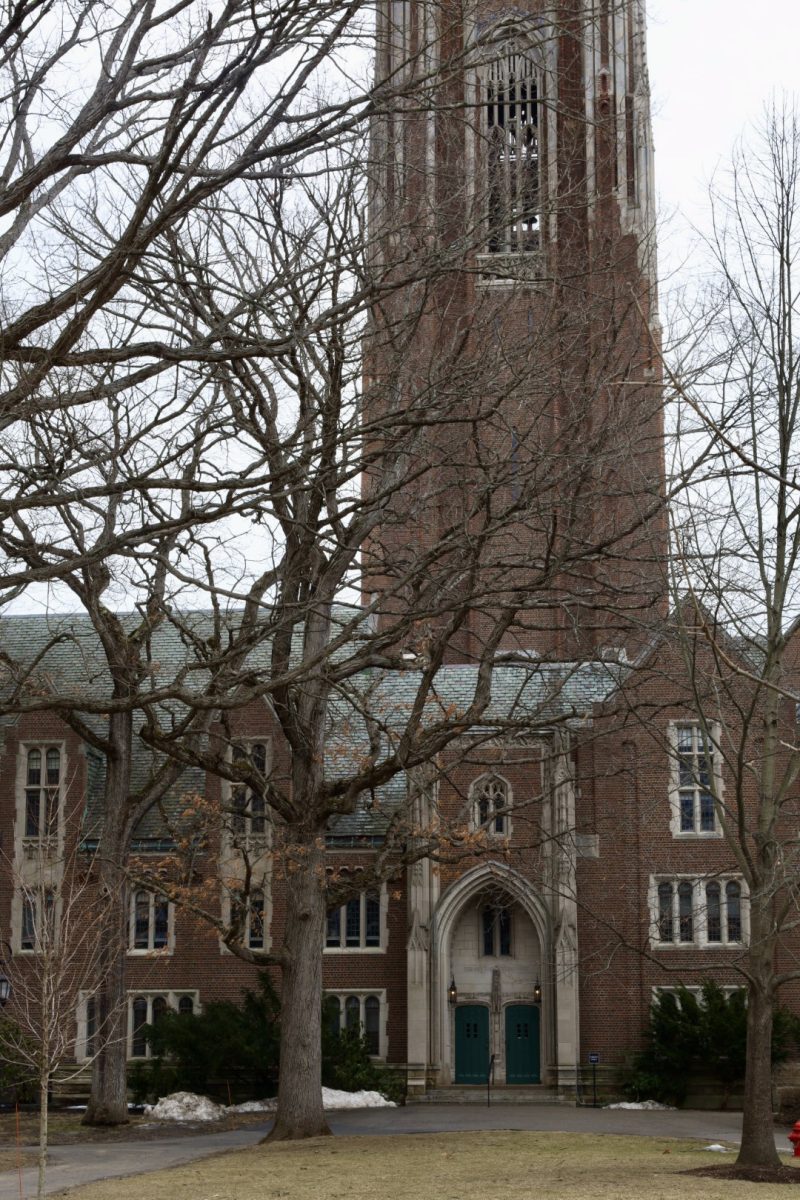On Feb. 11, around 30 student organizers from Divest Olin interrupted a Board of Trustees meeting to demand that Olin College of Engineering, one of Wellesley College’s partner institutions in the Three College Collaboration, divest its endowment from fossil fuels. Student organizers entered the Board’s meeting room chanting:
“What do we want? Divestment! When do we want it? Now!” “Make my Olin degree fossil free!” “When our future is under attack, what do we do? Stand up, fight back!” “Hey, ho, fossil fuels have to go!”
Olin’s divestment campaign regained traction not long after Wellesley divested its endowment from fossil fuels in spring 2021. To progress toward the College’s goal of achieving carbon neutrality by 2040, the Wellesley Board of Trustees ended existing investments and prohibited new investments in fossil fuel funds, following an affirmative vote from the student body, which also agreed to several carbon-reducing community actions. This decision was achieved after years of student activism, with groups such as Fossil Free Wellesley and Renew Wellesley generating community support for divestment by organizing protests and submitting formal requests to the Board.
After interrupting the meeting, Divest Olin organizers went around in a circle and said why they care about climate justice. Some reasons that were mentioned include the destruction of the Earth’s natural beauty, wildfires in students’ hometowns and the disproportionate effects on communities of color caused by climate change.
Olivia Chang ’25, an Olin student and organizer with Divest Olin, said at the direct action, “Standing in front of you now is where months of working within the system has left us. We’ve been told by Board members on the divestment committee that there are few financial concerns about divestment, that their only concern is setting a precedent for acting upon student input. … Look within yourselves and ask yourself what precedent you want to be setting. Do you want to set one of … denial, or do you want to set one that honors our values, uploads our institutions, and inspires both students and administrators alike to always strive to work together to better the communities that we so deeply care for? The choice is yours.”
According to Chang, Olin students, faculty and staff have been pushing for divestment since 2016. The campaign became newly invigorated in May 2022, after Chang became frustrated with her on-campus sustainability position, in which her primary responsibility was to remove compost from student dorm buildings.
“How can this be the only thing I can do at Olin to advance any kind of climate action?” said Chang. “Like, this is not enough. I’m taking out the compost and the world is burning. I’m sick of all these individual actions, like, ‘just reduce your carbon footprint’ things.”
In summer 2022, members of Divest Olin drafted a 50-page proposal detailing the moral and financial reasons to divest from fossil fuels, which were presented to the Board. Throughout the fall semester, student organizers hosted a variety of on-campus events to raise awareness about the campaign leading up to a student referendum in Nov. 2022, in which 93% of students voted in support of divestment. Following the vote, Olin President Gilda A. Barabino announced the creation of an investment working group committee to consider changes to Olin’s endowment, which Chang and other student organizers were appointed to. After growing frustrated with Board members’ opposition to divestment, Chang and other student organizers decided to start taking direct action, starting with the Feb. 11 interruption of the Board meeting.
“We realized that we’re not going to let divestment die by committee,” Chang said.
At the direct action, Board members responded to students’ demands. They thanked the students for their passion but critiqued the method by which students delivered their message. They professed their support for the group’s goals of climate action but disagreed that divestment was the right course of action to achieve that goal.
The Olin Board of Trustees did not respond to a request for comment.
Following a back-and-forth dialogue, in which students and Board members argued over whether students were given a voice in the Board’s decisions, Board members began to leave to resume their meeting in a different room. Before the last few members left, students orchestrated a die-in, requiring Board members to step over students’ bodies as they exited the room. Students took a seat at the conference table previously occupied by Board members and blasted music.
Going forward, Chang said that Divest Olin intends “to keep escalating until our demands are met. Divestment is really important to us. We believe our college should not be funding climate chaos. And we also believe the college should listen to students.”
While she is pleasantly surprised that engineering students have been open to embracing community activism, Chang said she is frustrated that the Board’s actions do not reflect Olin’s values of collaboration, experimentation and risk-taking. She urges Wellesley students to get involved by coming to the group’s future actions and holding solidarity with student climate activists. The group can be reached @divestolin on Instagram.
“I hope that other students see that you can work for change within your community and, like, organize within your community,” said Chang. “We’re not just engineers, we can also be activists. Students have power, and we should take it.”




